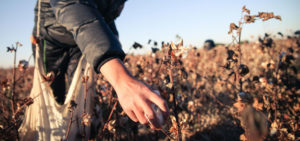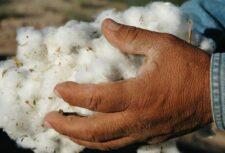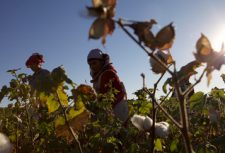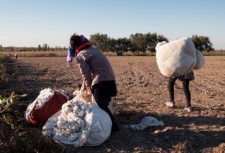Disclaimer: This article is more than 8 years old, and may not include the most up-to-date information or statistics. Please verify information with more recent sources as needed, and if you have any questions contact our Press Office.
20 November 2015
Leah Sullivan, Cotton Crimes Project Officer

“Cotton! You have to go and pick cotton and fulfil the quota. Is it clear!?”… …”What’s this? You delivered only 1,286 kilograms? Why is that? I’ll tear your head off!”
A government administrator, threatens employees for failing to pick enough cotton, secretly recorded on September 29, 2015 .
Autumn 2015 in Uzbekistan saw little change to previous years – the cotton harvest is ending, and with it the most active period in the world’s biggest state-orchestrated systems of forced labour.
From September until early November, it is estimated that over one million men, women, and children were ordered to work in the country’s cotton fields picking a total of 3.35 million tons of cotton. A majority of those forced to work are forced to leave their usual jobs as doctors or teachers, in order to fulfil quotas issued to public administration bodies by the central government.
People have to work often far from their homes, staying in makeshift accommodation and working long and exhausting hours in sometimes dangerous conditions. Failure to comply with orders can result in being fired, or expulsion, in the case of students. Other citizens, including pensioners, were threatened with having social benefits or pensions withheld.
As in previous years, Anti-Slavery’s partners the Uzbek-German Forum for Human Rights (UGF) monitored the 2015 cotton production cycle from beginning to end. Those participating in the monitoring reported persecution by the government: harassment, detention and threats aimed at suppressing citizens’ attempts to document the cotton harvest.
This year, a number of particularly cruel abuses of human rights activists were noted. These included the arrests, 18-hour interrogation, beatings and forced body cavity searches of two women activists, Elena Urlaeva and Malokhat Eshankulova.
A human rights defender, Dmitry Tihonov has also had his office burned down in October and property stolen. The fire destroyed Tihonov’s two computers, a laptop, two hard drives, cameras and files – all including evidence of forced labour during this year’s cotton harvest. The suspected arson came on top of trumped up charges of disorderly conduct brought against Tihonov last month.
Activists and journalists have noted this year the lengths the Government has gone to mask the use of forced labour. Public-sector workers were under strict instruction to inform international observers that they work in the fields voluntarily. Universities and high schools required students to write statements that they voluntarily participate in the cotton harvest, and hospitals have required the same of nurses.
Yet the evidence collected by UGF’s monitors, including official documents, confirms the use of forced labour by the Uzbek government. Even though it had committed to end forced and child labour, the evidence shows that it is falling foul not only of these commitments, but also of its obligations not to perpetrate basic human rights abuses against its own people.
We are now working together with our partners from the Cotton Campaign coalition to compile evidence from this year’s harvest. The report will be published in the coming weeks, along with video testimony of people forced to work in the harvest this year.
In the coming year the international community, including the European Union, International Labour Organisation and the World Bank will make critical decisions about the future prospects for the trade in Uzbek cotton. It is vital that in making those decisions the voices of Uzbek people forced to pick cotton and those facing abuse and harassment in attempting to report on what’s happening on the ground are heard.





